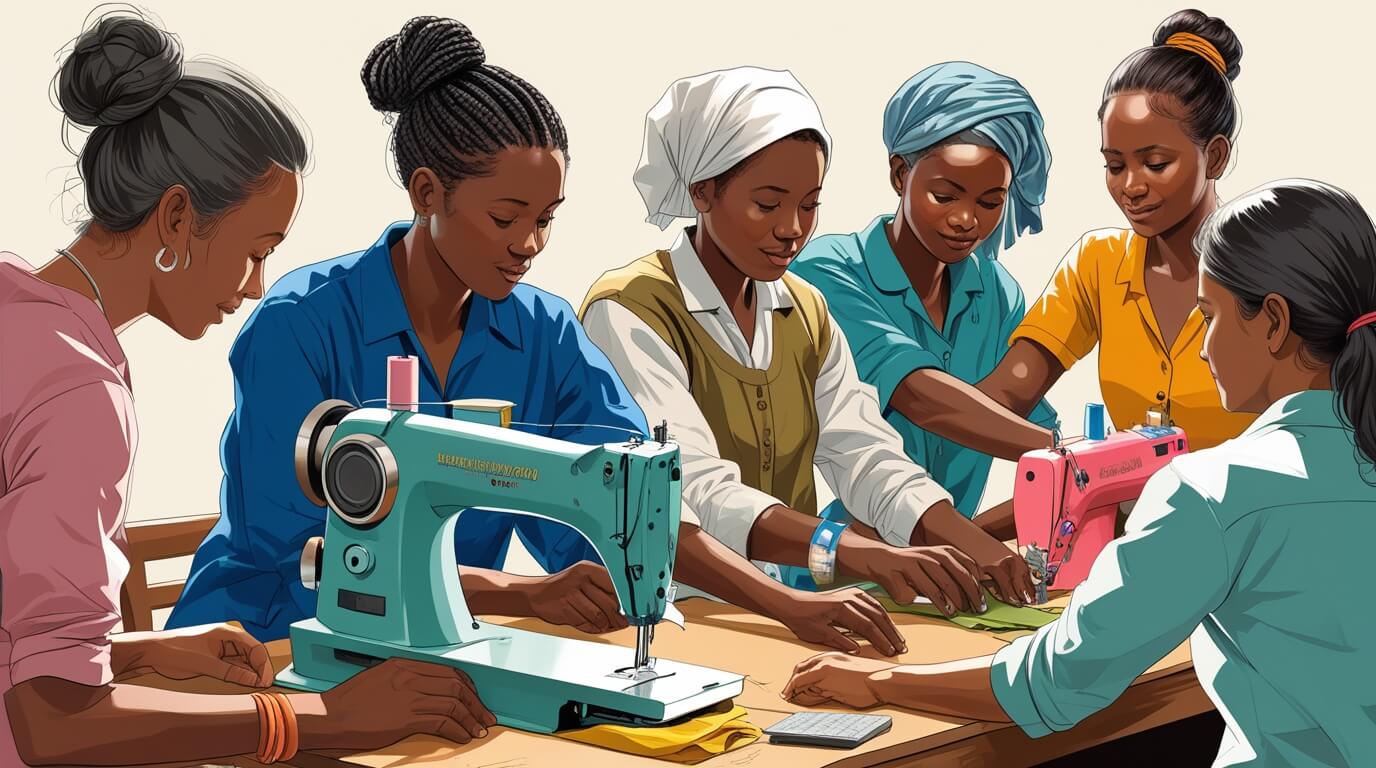September 08, 2025

Poverty alleviation is not just about providing temporary relief—it’s about creating systemic change that allows individuals and families to break the cycle of poverty. While short-term aid may address immediate needs like food or shelter, long-term poverty reduction hinges on economic empowerment—giving people the skills, tools, and opportunities they need to support themselves in a sustainable way.
In this mission, non-profit organizations serve as powerful catalysts. They work directly with vulnerable populations, often in areas where public institutions and private sector initiatives fall short. By promoting economic self-reliance, these organizations foster dignity, agency, and resilience in communities that need it most.
A cornerstone of economic empowerment is employment—not just any job, but meaningful, stable work that offers room for growth. Many non-profits design community-driven employment initiatives tailored to the specific cultural and economic needs of the populations they serve.
Non-profits frequently offer skills-based training in trades such as:
These programs often come with certifications, mentorship, and job placement assistance, increasing employability in competitive labor markets.
For instance, organizations like TechnoServe train young entrepreneurs in developing countries in digital and business skills, allowing them to launch or grow their own enterprises.
Beyond employment, many non-profits support microenterprise development, helping individuals—especially women—start and grow small businesses. These initiatives might include:
Such programs not only generate income but promote self-reliance, enabling participants to become job creators within their own communities.
For youth-focused development, explore Life Skills for Teens: Preparing for Adulthood to see how essential life and work readiness skills set a foundation for future success.
Even with income, individuals can remain trapped in poverty without financial literacy. That’s why many non-profits pair job training and business development with comprehensive financial education.
Such knowledge is often tailored to low-literacy or rural populations, using storytelling, visuals, and peer-learning techniques to enhance understanding.
Explore The Importance of Financial Education for Low-Income Households for insight into how money management can create long-term stability.
Organizations like FINCA International provide powerful case studies of microfinance initiatives, helping small-scale entrepreneurs grow businesses through accessible loans and financial training.
Poverty is not experienced equally. Women, ethnic minorities, people with disabilities, and rural populations often face systemic barriers to education, employment, and ownership. Recognizing this, non-profits intentionally design programs that prioritize inclusion and equity.
When women have access to income and decision-making power, entire communities benefit. Non-profits focus on:
According to the World Bank, women reinvest up to 90% of their income in their families, compared to 30–40% for men. That’s why empowering women is one of the most effective strategies for community upliftment.
Programs also support:
Tailored approaches—such as offering sign-language interpreters in vocational training or making microloans accessible to those without legal documents—make empowerment more inclusive and just.
Dive into grassroots approaches in Sustainable Livelihoods: Breaking the Cycle of Poverty for real-world stories of transformation.
True empowerment goes beyond income generation—it also considers the environmental, social, and economic sustainability of livelihoods.
Non-profits increasingly focus on helping communities develop green livelihoods, such as:
These not only create jobs but also preserve ecosystems, ensuring future generations inherit both economic and environmental wealth.
In regions affected by climate change, non-profits teach climate-smart agriculture or provide disaster risk reduction training, helping communities adapt and stay resilient.
The UNDP – Economic Empowerment provides further examples of how non-profits align local strategies with global goals such as the UN Sustainable Development Goals (SDGs).
Non-profits fill critical gaps in global development. Unlike profit-driven enterprises or bureaucratic government programs, they operate with mission-centered flexibility, reaching underserved and marginalized groups with tailored, culturally sensitive solutions.
By supporting non-profits—whether through donations, volunteering, or advocacy—you become part of a global movement aimed at ending poverty through empowerment, not dependency.
Poverty isn’t solved through handouts—it’s tackled through empowerment. Non-profit organizations are at the forefront of this transformation, equipping individuals with the skills, confidence, and opportunities to shape their own futures. Through job creation, financial literacy, inclusive support systems, and sustainable practices, they lay the foundation for thriving, resilient communities around the world.
Want to make a difference? Support a non-profit today and be part of the solution to global poverty.
Stay up to date with the latest tips, expert insights, product reviews, and step-by-step guides to help you grow, create, and succeed—no matter your industry or passion.